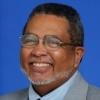
Adapting to 2020 and a pandemic shutdown hasn’t been easy for orchestras, but as you go through the stories, you find much more hope and courage than despair. Many orchestras are taking the cue from circumstances and reinventing a concert format that hasn’t really changed or adapted to the times in over 100 years. It is, as the filmmaker and videographer Tal Skloot, says, “an exciting time.”
And sure, the big-budget orchestras have been leading the way, but then there’s the Fresno Philharmonic, led by President and CEO Stephen Wilson and Music Director Rei Hotoda. Not the organization you’d first think of to break through the online noise with their own style of video concert, but don’t be that surprised. We’re surrounded by great music in less well-branded packages. The Fresno Phil is debuting their own online series, called Digital Masterworks, on January 16, with a concert that begins with Adolphus Hailstork’s An American Fanfare, continues with William Bolcom’s Commedia for (Almost) 18th-Century Orchestra, and concludes with Joseph Haydn’s Symphony No. 44. The video of the concert will appear on both YouTube and the orchestra’s website. All concerts are presented free of charge and will remain available after the premiere. Other concerts follow on February 20, March 13, and April 17.

What makes this series special, however is that the video, created with Skloot’s company, Tritone Media, will intercut the scenes of the music with video of the Fresno community and area, introductions to the music by Hotoda, and interviews with some residents. Skloot maintains that the result is not art-film but a direct arc that opens up the musical experience. “No shots of waving wheat while Copland plays,” he assures us.
We conceived with our team a way to think about really being there. Big organizations, like San Francisco and LA, have the resources and ability to do this. But I thought, why can’t we do this with a smaller organization like Fresno and do it perhaps a little more economically but still have multiple camera angles, get in close on musicians, and have, rather than a distant experience, a more visceral experience.”
“Rei turned out to be a fantastic host, so that we created a bit more of a PBS TV show than just a concert,” says Skloot. Hotoda is already practiced at connecting with the city and surrounding area and says “I think all of us, during this time, ‘resilience’ is the word that comes to mind for all of us, all of the immigrants and the farmers in our community. And I think that’s what we’re trying to do right now as an arts organization is just to stay focused on what we have to do.”
While many organizations have been rethinking and retooling during the pandemic, asking questions about what they perform and how to do things better, Hotoda tells us that Fresno Phil has always been doing these outreach activities and is just expanding the model now: “it’s been our mode of operation since I was the music director — bringing in African-American composers, bringing in women composers, indigenous composers, composers of East Asia — so this has actually given me more free rein to explore in this format. To do something unique during this time is something that really appealed to me as well.”

Wilson says that, while the orchestra was committed to doing the concerts for free on principle, the freedom that came from not using concert receipts as a metric of success was also freeing. “There was more room for experimentation and risk,” he says, adding “one of the interesting things to see long term is to see how a lot of these experiments made during the pandemic change what we do live.”
The experience of making music and the intensity of the recording experience were welcome surprises for Hotoda, making her think about how much more important music is now, when we’re isolated, than ever before. Wilson added, “At the recording session it dawned on me that, ‘this is the first live music I’ve heard since early March.’ It really moved me more than I expected it to.”
The ensembles used in the concert vary from 15 to 24 players, and with winds, brass, and percussion playing together there was definitely a lot of protocols involved in capturing the music. The musicians came in by section and rehearsed and recorded program parts from all for Digital Masterworks concerts together at one time. Hotoda says, “The musicians were a little stunned about how much repertoire they had to play during one recording session, but they were troopers.” Normally working with four rehearsals, the musicians contended with only two for the recording set, but Hotoda reports: “it was intense and condensed, but people were so thrilled to be making music; some said they had to hold back tears while playing. No matter how stressful the situation was overall the musicians really stepped un in an emotional way.”
Skloot reports that the musicians he talked to were thankful to be playing again: “I think it’s a great service that Fresno provided to the musicians. After we did a recording session, a few of the musicians had been in my film Freeway Philharmonic, and I got to chat, and this was really a lifeline for them. There are people who are selling their horns to pay rent now. To be able to earn money this way, I’m very blessed to be part of this.”
And if the presentations are widely shared, Hotoda is ready for her orchestra to receive the earned recognition: “I’d say, welcome to our family. We want to embrace our community and we want to share this music with you and we’re just here with live music and we want to share it with you.”




